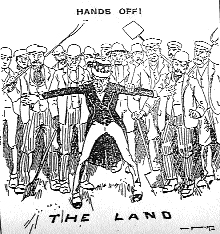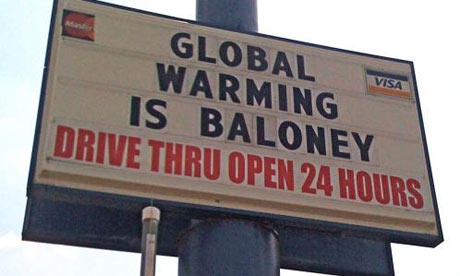Uprising: The Struggle for the Global Commons
Published in the Spring 2013 edition of Strike! Magazine - a gutsy, innovative newsmagazine which you can buy for just 1 quid.
The last half decade has seen the persistence of social
protests in various forms, including civil disobedience and mass demonstrations.
From the Occupy movement across the Western world, to the Arab Spring in the
Middle East and North Africa; from riots in European capitals, to the current
protests in Cyprus: uprisings have become a regular feature of life.
With the world reeling under the impact of banking
collapses, austerity, environmental crisis, energy woes and rocketing food
prices, it's no wonder that people everywhere are rising up demanding change.
But at the heart of these disparate uprisings is a single
global struggle - a struggle between the people and profit, for access to the
planet's precious land, water, energy, raw materials and resources: a struggle
for the global commons.
Over three hundred years ago, the struggle kicked off in a
major way when the seeds
of English capitalism were planted amidst mass evictions of peasants from
public lands. Formerly landed peasants, who were compelled by threat of force
to pay tribute, a percentage of their produce, to local lords, now ended up as
a new, landless proletariat. They had no choice but to sell their labour power
for wages to the lords who now owned and controlled what was once their land.
This process of enclosure gradually enforced a new social condition - the
dispossession of people from access to the sources, means and technologies of production
- that was and remains the fundamental basis of modern capitalism.
But in 1649, Gerrard Winstanley
gathered together fifty odd supporters to challenge the new order with a
radical message - to make "the Earth a common treasury for all…
not one lording over another, but all looking upon each other as
equals in the creation". Occupying vacant and public lands
in Surrey, Buckinghamshire, Kent, and Northamptonshire,
Winstanley's rag-tag movement of "Diggers" uprooted the centralisation
of economic power with a call for equal access for all, growing their own food,
and distributing it to the public for free - until local landowners hired thugs
and mercenaries to force them out. Although the Diggers turned to the
government for support, they were ignored and forced to disband.
But the struggle for the 'global commons' had only just
begun. Fast forward to the 21st century, and despite the wonders of modern
industry and global communications, in many ways little has changed. In
countless communities around the world, in the UK, in Spain, in Greece, in
Africa, Latin America and India, the spirit of the "Diggers" lives on
as poor people, farmers, workers, and peasants find themselves making a last
stand between the common land they own collectively, and global corporations in
pursuit of ever greater profits.
Ultimately what we are facing is a struggle between two
visions of the world. Global civilizational crises of climate change, energy
depletion, food scarcity, economic meltdown, and violent conflict, are interconnected
symptoms of a protracted collapse process of the broken, neoliberal model. As
this model increasingly crumbles under the weight of its own sustainability,
the battle for new, more viable alternatives intensifies.
At stake is a new, emerging
paradigm of civilization based on a vision of a global
commons for all - new only in the sense that such a notion has never been
practiced before on a global scale, for it is rooted in ideas and norms that
traditional peoples all over the world have implemented in different ways.
Currently, at the core of our current civilizational model
is a dramatic inequality in access to the Earth's resources, coupled with an
ideology which sees those resources as nothing more than a playing field for a
minority of members of the human species to accumulate material wealth without
limits. The vast majority of the world's resources - not just monetary wealth,
but land, resources and raw materials - is owned and controlled by a tiny
minority of states, monarchs, aristocratic families, banks and corporations.
It is no accident that the Queen
of England - arguably the harbinger of contemporary global capitalism
before its supersession by the United States - is the world's largest landlord,
owning about 6.6 billion acres of land. That is one-sixth of the Earth's land
surface. It gets worse. 1,318
corporations own 80 per cent of the world's wealth, and out of that, a tiny
interlocking nexus of 147 'super corporations' own half of that.
And as civilizational crises deepen, the response of this
nexus of power has been to attempt to increasingly centralise its control of
the Earth's last remaining untapped resources. Indeed, in the last half decade
alone, land grabs largely in the less developed countries have
accelerated dramatically. In 2008-2009, about 22 million hectares were
subject to acquisition according to the World Bank, rising to about 80 million
in 2011. Overall, the last decade has seen a total of 203 million hectares
acquired or being negotiated. This process, driven by varying combinations of
political patronage, violence, and market forces, is leading to the escalating
displacement of poor people from commonly owned lands, and the transfer of
their land into centralised ownership of foreign corporations and investors.
What is driving this process? Short answer: a civilization
in overshoot. Across the board, as resources
are depleting, scarcity is increasing, and prices are rising. Since 2005,
the world food price index has doubled, and despite stabilising this year, remain
at record levels. Simultaneously, the global oil index in the same period has
roughly tripled, and despite promises about shale gas and fracking, even the
International Energy Agency concedes that the age of cheap oil is well and
truly over. Other commodities are also rocketing in value, from metals, to
timber, to chemicals, with one study by Inverto AG noting a "systematic
shortage" leading to "supply bottlenecks", leading companies to
raise prices, passing costs onto consumers.
Unfortunately, even those who claim to be at the vanguard of
responding to these crises can be part of the problem. Chris Martenson, for
instance - a former executive of the giant pharmaceutical firm Pfizer and an ex
Vice President at US defence conglomerate, Science Applications International
Corporation (SAIC) - who now devotes all his time to writing presciently about
the "triple crisis" of environmental, energy and economic collapse,
has very few
meaningful solutions.
Instead of advocating systemic transformation, or
challenging capitalism in its current form, he advocates - effectively - a
strengthening of the most regressive neoliberal principles: Individuals should
seek "resilience" by investing what
remains of their wealth in high value stocks and shares - largely commodities
like farming land, and others which we have seen are rocketing in price - based
on Martenson's strategic investment advice. This sort of 'elitist survivalism'
is ultimately part of the problem: encouraging those with capital to maximise
their control of the world's wealth, as crises kick in, in order to remain safe
amidst imminent civilizational collapse. Meanwhile, the rest of the world's
population can go to hell in a handbasket.
As the persistence of uprisings proves, of course, it won't
work - people will not simply lay back while power seals its destruction of the
Earth.
And civilization is unlikely to collapse so imminently. Despite
that, while things will get worse before they get better, the trends we are
seeing today are illustrative of a fundamental and often forgotten reality: that the 21st
century signals the unequivocal demise of the carbon age. The failure
to come to terms with this fact and its implications is symptomatic of the
delusion of our current era. Whatever happens, by the end of this century (if
not far earlier), our civilization in
its current form will not, cannot
exist. We will either have overshot, drastically and fatally, with horrifying
consequences for humanity, or we will have transitioned to something far more
in parity with our environment - or somewhere in between.
That is why, the choices we make now, the struggles we
choose to partake in now, will be critical in determining the course of our
future. We do not have the option of pessimism and fatalism. There's enough of that
to go around. Our task is to work together to co-create viable visions for what
could be, and to start building those visions now, from the ground up.





